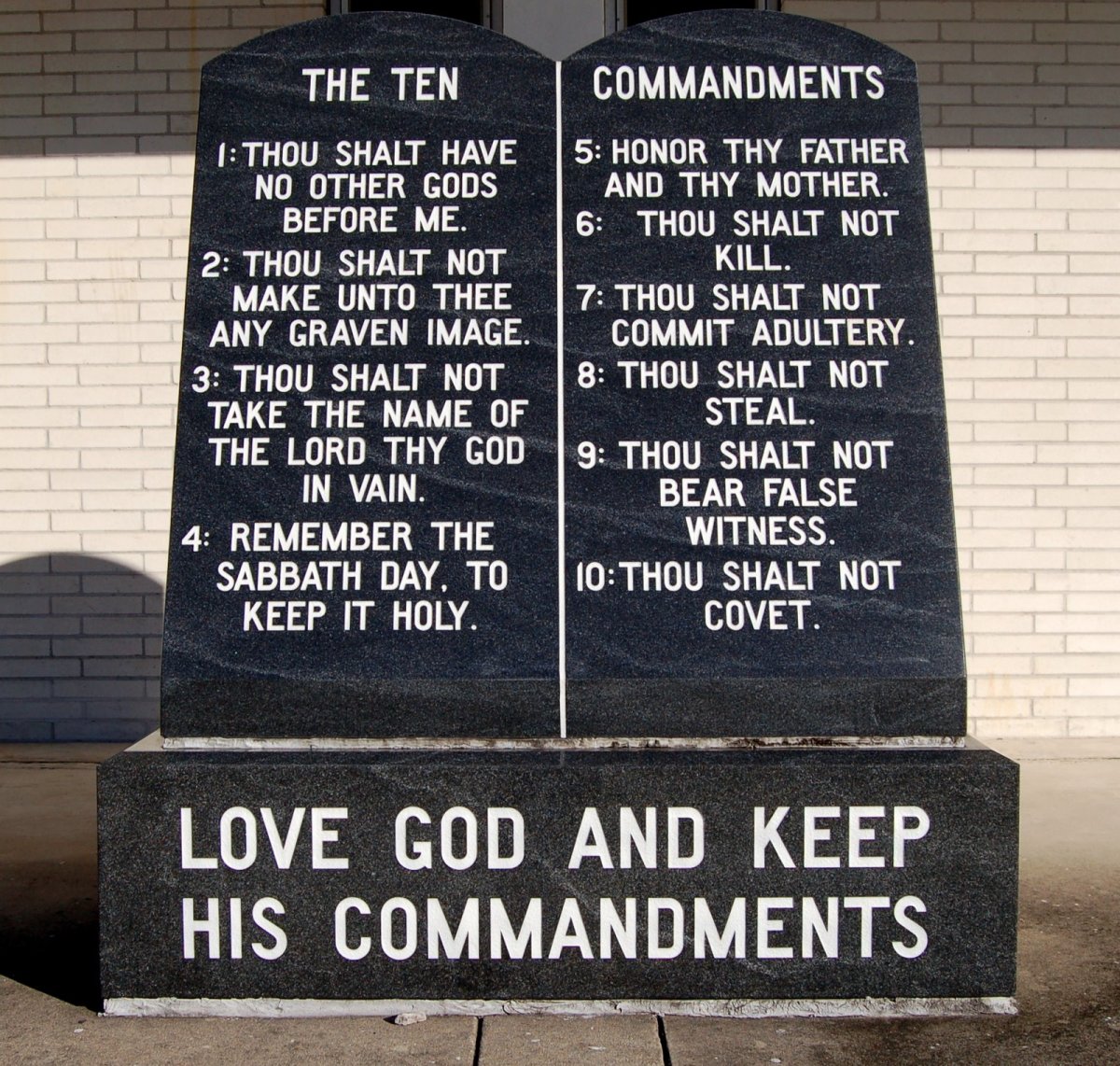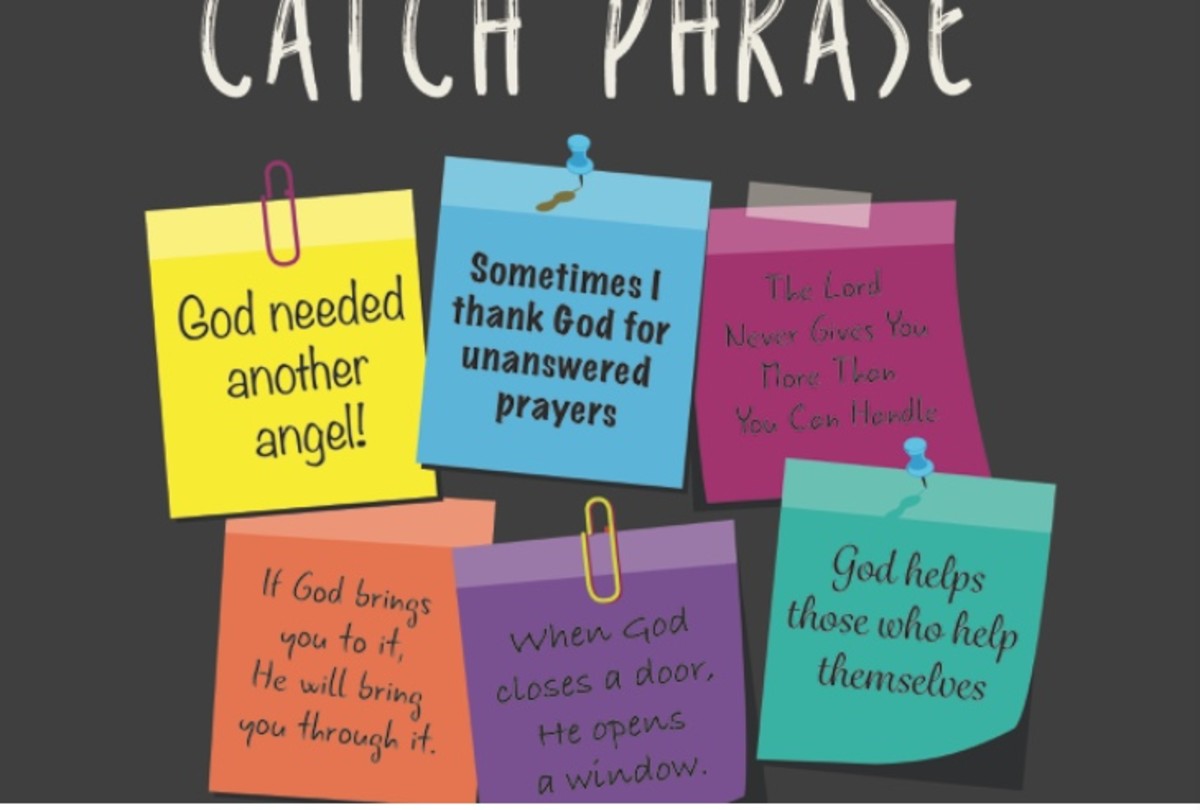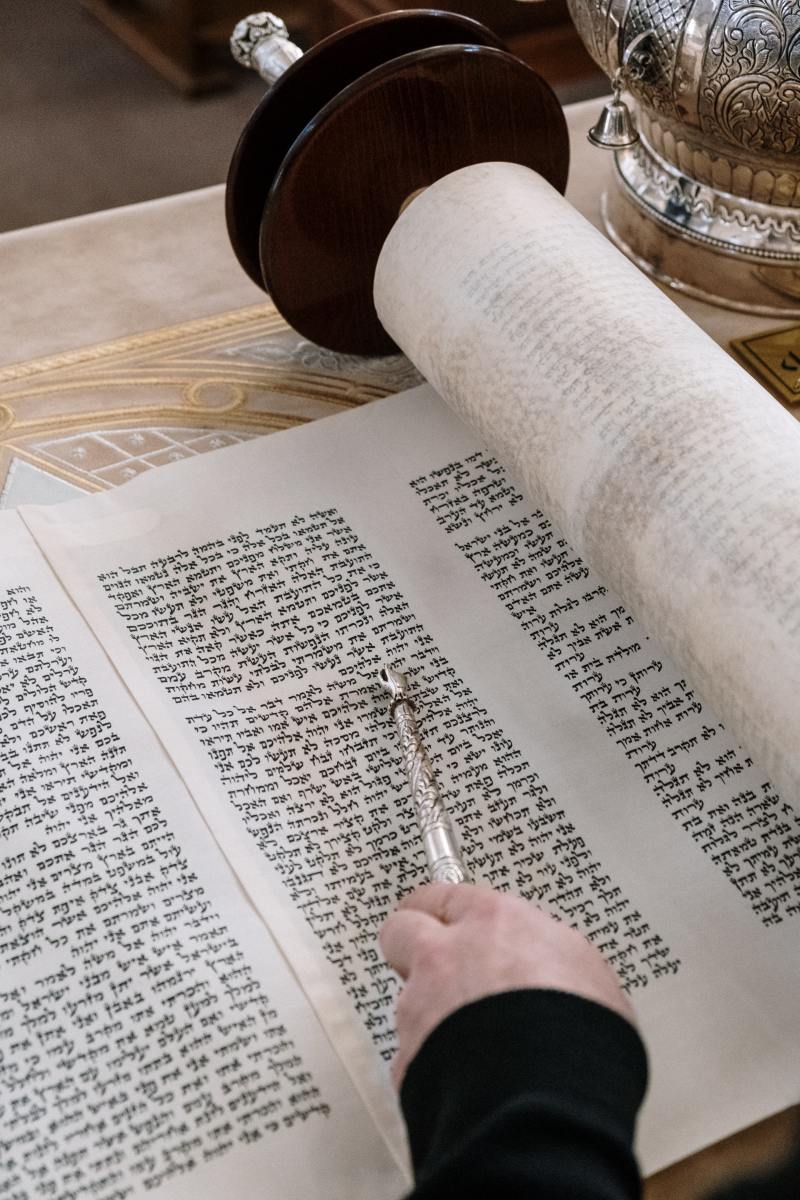The Fourth Commandment: Still Relevant, or Nailed to the Cross?

Remembering The Sabbath Day - But Which One?
“Remember the Sabbath day by keeping it holy. Six days you shall labor and do all your work, but the seventh day is a Sabbath to the Lord your God. On it you shall not do any work, neither you, nor your son or daughter, nor your manservant or maidservant, nor your animals, nor the alien within your gates. For in six days the Lord made the heavens and the earth, the sea, and all that is in them, but he rested on the seventh day. Therefore the Lord blessed the Sabbath day and made it holy”. Exodus 20:8-11 NIV
The book of Exodus is the biblical history of a small group of slave laborers in Egypt and their subsequent freedom and long journey to what was considered the promise land. A young boy named Joseph once sold into slavery by his brothers had grown to become ruler of all Egypt, second only to the Pharaoh himself. As ruler Joseph brought his brothers and the entire nation of Israel into Egypt to escape famine in Canaan (once considered the promise land). Over a period of time the children of Israel began to multiply in numbers which became a threat to the rulers of Egypt. After the death of Joseph they were forced into slavery which lasted for several generations. Hundreds of years later a man named Moses, of Jewish decent, but raised in the Pharaoh’s court - eventually reunited with his Jewish family and led the people of Israel out of what had become bondage and abuse under the reign of the Pharaoh. Their road to freedom was a forty-year journey which included a stop at the foot of Mount Sinai where at the top of the mountain Moses received the Law known as “The Ten Commandments’. These Commandments came at a time when the Israelites were developing a sense of purpose as a nation who was chosen by God to represent Him to the world. Hundreds of years of the polytheistic Egyptian culture had dulled the Israelites sensitivity to the one true God. As a tribe of nomads, living as one large community, they needed some basic rules of conduct and a re-energized belief in a higher power other than the earthly Moses.
Of this collection of Ten Rules was one regarding a day of rest. It was the fourth rule commanding the people to remember the Sabbath Day to keep it Holy. This rule preceded the Jews which originated immediately after the creation as described in the book of Genesis; “Thus the heavens and the earth were finished, and all the host of them. And on the seventh day God ended his work which he had made; and he rested on the seventh day from all his work which he had made.And God blessed the seventh day, and sanctified it: because that in it he had rested from all his work which God created” Genesis 2: 1-3
From the end of creation to the beginning of man, the fourth commandment was instituted by God Himself and later honored by Adam and all the Patriarchs, from Abel to Noah, to Abraham, to Jacob – up to perhaps the end of the second century. When the chosen people were in bondage in Egypt, many, in the midst of prevailing idolatry, lost their knowledge of God's law through forced labor - but when God delivered the Israelites, He proclaimed his law in awesome grandeur to the assembled multitude, that they might know His will for them and that these laws were for their protection, and most importantly, for their salvation – for generations to come. However, historical data suggests that by the second, third and fourth centuries almost every religious organization observed Sunday — sometimes as a Sabbath-like day of worship, meetings and rest, sometimes as a day for worship and work, sometimes in addition to the Sabbath and sometimes instead of the Sabbath. Jesus Himself was known to ignore certain Sabbath teachings although He did not ignore the Fourth Commandment – or did He? With both historical and biblical data supporting the origin of the Fourth commandment given to the people by God himself why then do 90% of religious organizations across the globe honor the first day Sunday and at what point in History did it gain such widespread acceptance – and for what reason?
Perhaps critical events of the third century may offer a few answers. Secular historical data, backed by biblical writings suggests that up to this point every religious institution honored the Seventh Day Sabbath – except Roman and Hellenistic Pagans. During the mid to latter part of the third century the Christian movement was spreading rapidly across the Roman Empire and Christians began to out number Pagans forcing certain pagan rituals, temples, and synagogues to become obsolete putting them in jeopardy of being destroyed. It was at this critical juncture that The Roman Emperor Constantine The Great, converted from Paganism to Catholicism/Christianity – for political reasons, mainly as a last minute attempt to hold his empire together due to feuding between Pagans and Christians.
However, converting to Christianity did little to enforce the Seventh Day Sabbath because later in the year 321 AD, Constantine sent out a edict enforcing Sunday worship which he called the ‘Venerable day of the Sun’ to become the official day of worship for all people living within and around the Roman Empire – except those living in the countryside and farmers. This group was excluded from this edict as Constantine was informed that this day was perhaps the best day for farmers to plant and/or harvest their crops from the fields, and since the Gross National Product was based on commerce, he did not want to interfere with revenues of the state. Therefore the edict did not affect the total population thereby creating several loopholes, allowing Seventh Day worshippers to continue their Seventh Day Sabbath services – albeit in secrecy. Could this edict be the source which changed God’s appointed day of rest to Sunday?
In the year 538 AD The Third Council of Orleans would enhance the edict excluding no individual, institution, or organization from the enforcement of Sunday worship. This was perhaps the single most policy which solidified and made legal Sunday worship as it was now being enforced by Roman law. The Roman General Versalius was later given authority to further enforce this law which he executed successfully after destroying the Goths Army. The Goths refused to believe as the Church of Rome did, and as a consequence were branded as Arians. Romanism meant little to them. In fact, it meant even less to Ulfilas, their great leader. The Goths refused to go along with the mounting innovations being introduced into the church of the Caesars. The church quickly branded any competitor as Arian. The Goths and other Germanic peoples were the final holdout in the widespread of Sunday worship. Once the Goth Army was eliminated the Papacy began a vicious campaign of persecuting Christians who did not follow the new Roman rules of religious worship.
Most supporters of Sunday worship today however, find their justification within various statements found in the bible itself such as the statement made by the Apostle Paul in the book of Colossians 2:16 as he states; “we are not to allow anyone to judge us in this matter of keeping the Sabbath”– suggesting that the day of worship is irrelevant as there are many Sabbaths. Modern day theologians however believe that Colossians 2:16 is perhaps the most abused and misunderstood Bible passage when it comes to understanding the difference between The Ten Commandments and the ordinances of the ceremonial law, which they believe Paul was referring to. So what was the ceremonial law and does Colossians 2:16 actually refer to it or the Ten Commandments? The ceremonial law - with its sacrificial system pointed the people to the coming of Christ. Every time the blood of an animal was shed in the old Jewish temple, it was a reminder to both the onlooker and participant that a Messiah would soon come and die for their sins which will bring an end to the ceremonial law. Still others believed the law of the Sabbath was nailed to the cross in accordance to Jesus’ final words found in the book of John 19:30 “When Jesus therefore had received the vinegar, He said, It is finished: and He bowed His head, and gave up the spirit”.
Biblical scholars however believe that this statement has no relevance whatsoever to the Ten Commandments. Their belief, supported by historical data suggests that when Jesus died on the cross of Calvary, the veil of the great temple curtain was torn from top to bottom to signify that the entire ceremonial system was forever finished, thereby ending the need for the priests to offer up animal sacrifices for the sin of man. They further conclude that the comment “It Is Finished” has no reference whatsoever to the Ten Commandments which was ordained by God Himself for the protection and salvation of the people. In fact, they feel that to suggest such a notion would put the son in direct opposition to the will of the Father therefore making the father a liar, the son a traitor and the Ten Commandments pointless. Ardent supporters of the Seventh Day Sabbath counter John 19:30 with another statement made by Jesus found in the book of Matthew 5:17 “Do not think that I have come to abolish the Law or the Prophets; I have not come to abolish them but to fulfill them”. Does Matthew 5:17 reference the Ten Commandments or the Ceremonial Law of Moses and is John 19:30 and Matthew 5:17 contradictory statements of the gospels – or are they just simply misunderstood and used to justify individual or group actions?
Still, most 21st century Christians believes that all is well providing we worship one day in seven. A careful reading of the scripture however suggests that God was specific as he states to “Remember the Sabbath Day, the seventh day - not any other day. He further states, “The seventh day is the Sabbath of the Lord”. Supporters of the seventh day Sabbath back this statement with a more universal justification in that ancient, and modern day calendars around the globe shows Saturday to be the seventh day, no matter where you’re from. Although recently, some modern day calendars have made a change in the order of the days of the week making Saturday the first day and Sunday the seventh. Most Sunday worshipers believe the Seventh Day Sabbath is strictly the Jewish Sabbath while the first day is the Christian Sabbath. Seventh day Sabbath supporters on the other hand, suggests that the Seventh Day Sabbath is not merely a Jewish regulation at all.
Sabbath day supporters vehemently believe that the Sabbath is inextricably woven together with creation: For God Himself rested on the seventh day (Gen. 2:1-3). Not only that, but the Sabbath just happens to be one of the Ten Commandments, which Seventh Day worshippers regard as a summary of God’s moral code. Non supporters of the seventh day Sabbath however view the Ten Commandments as being under the law which was nailed on the cross. Their justification is once again found in the teachings of Paul as the following statement is often repeated; “Well, since we are not under the law but under grace, we do not need to keep the Ten Commandments any longer.” Is this a valid point? Does it imply that we are free from the obligation to obey the law? Paul states in the book of Romans 6:14-15; “For sin shall not have dominion over you: for ye are not under the law, but under grace. What then? shall we sin, because we are not under the law, but under grace? Paul gives a clear explanation of his statement. After stating that we are not under law but grace, he asks, "What then?" This simply means, “How are we to understand this?” Then notice his answer. He says, “Shall we sin (break the law) because we are not under the law but under grace? In the strongest possible language Paul states that being under grace does not give a license to break the law.
Seventh Day Sabbath keepers support Paul’s explanation in conjunction to the following statement which according to the biblical writers was spoken by God Himself “Thus saith the LORD, Keep ye judgment, and do justice: for my salvation is near to come, and my righteousness to be revealed. Blessed is the man that doeth this, and the son of man that layeth hold on it; that keepeth the Sabbath from polluting it, and keepeth his hand from doing any evil. Neither let the son of the stranger, that hath joined himself to the LORD, speak, saying, The LORD hath utterly separated me from his people: neither let the eunuch say, Behold, I am a dry tree. For thus saith the LORD unto the eunuchs that keep my Sabbaths, and choose the things that please me, and take hold of my covenant; Even unto them will I give in mine house and within my walls a place and a name better than of sons and of daughters: I will give them an everlasting name, that shall not be cut off. Also the sons of the stranger, that join themselves to the LORD, to serve him, and to love the name of the LORD, to be his servants, every one that keepeth the Sabbath from polluting it, and taketh hold of my covenant; Even them will I bring to my holy mountain, and make them joyful in my house of prayer: their burnt offerings and their sacrifices shall be accepted upon mine altar; for mine house shall be called an house of prayer for all people." Isaiah 56:1-7
A careful analysys of history supports the Biblical Sabbath. It has been established by several historians and theologians that the books of Matthew and Luke were written between 60 and 80 AD which offered no greater opportunity for each gospel to emphasize the changing of the Sabbath day, instead Luke states in Luke 23:56, “...And they rested on the Sabbath according to the commandment.” Jesus also showed that the Sabbath would still be kept after the cross and speaks of no day change when He is talking to the Apostles about the destruction of the temple in about 70 AD. Jesus says in Matthew 24:20, “And pray that your flight may not be in winter or on the Sabbath.” World leading historians also confirm this and that the Sabbath was kept by Jews and Gentiles until around 90-120 AD when the persecution of the Jews for Sabbath keeping became so great that many Christians decided to start keeping Sunday using the only reason they could find, which was that it was in honor of the resurrection. The reality is that they did this to escape severe persecution. Historical evidence supports the suggestion that the First day Sabbath was made law around 321 AD by Constantine after his conversion and joining the Catholic Church. As a result it was after 460 AD when Sunday eventually took on the official name of the “Lord’s Day”.
Ones justification for the support or denial of a single commandment is irrelevant in itself as none of the Ten Commandments stand alone. One can not choose which commandment to obey and which to ignore as the spiritual consequences are dramatically high. Therefore, each commandment is to be lived simultaneously in accordance to the will of God. However, God will never demand that His children abide by His laws of governance. Such would be contradictory in allowing man a free will. Therefore man is free to choose His own day of worship as the Sabbath was made for man – and not man for the Sabbath. On the other hand God does give very explicit warnings for disobeying His Commandments as stated in the book of Liviticus 26:14 - 29.
With this in mind, one must understand that law and grace goes hand in hand for if grace is absent from the law - how then would one know the prerequisites for obtaining it? In every field of life there exist certain guidelines for measuring success. Without these guidelines one may never know if they met the requirements. If one is traveling on a highway exclusive of warning signs and safety signals the probability of a life ending event increases dramatically as one would not know what exist around the corner - and how to avoid it. However, if the warning signs and safety signals exists and they are clearly defined the life ending probabilities decreases significantly as one would now have a better understanding of right and wrong and thereby eliminate those actions which may cause them severe harm. While some may obey the 55 mile per hour speed limit it is dangerous to ignore the stop sign or the red light as their intent is to provide a safe journey home. Therefore, the sign is the law by which one must obey but the intent of the sign is the grace by which one is saved. The law in itself has nothing to do with salvation as it can be ignored. However, salvation is obtained only by obedience to the law as it provides a guideline for obtaining it.
Perhaps the commandments were not meant to be laws at all but a mere set of ‘guidelines’. If the Ten Commandment were in fact laws, they would be enforced by God - without mercy, upon man. But since God allows man a free will to choose his own destiny the commandments therefore becomes nothing more than a set of guidelines designed to help man in his quest for spiritual utopia. Perhaps it was in fact, the ceremonial law which was finished at the cross and perhaps the commandments, as a set of spiritual guidelines is an embedded part of creation just as God intended it to be. Supporters of the Seventh Day Sabbath believe that non supporters tend to give much more credibility to the teachings of Paul than the instructions of God.
Nevertheless, both Seventh Day and First Day believers make valid points in defense of their respective Sabbath and every individual has the freedom of choice afforded them by a loving God! The greatest argument between seventh day and first day believers is the day of worship which logically is a mute point, as one can gather and worship on any day one pleases. However, there is only one Sabbath day ordained by God which, according to biblical instructions is the seventh day. Therefore, one can gather for worship on any day provided they keep the seventh day holy.
A careful study, challenge, and analysis of God’s word clearly reveals a specific day – the Seventh day as being the Sabbath of The Lord - which no other biblical text clearly refutes.
Peace be with you!








